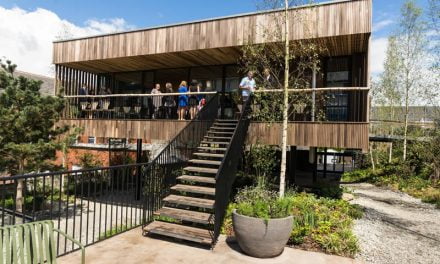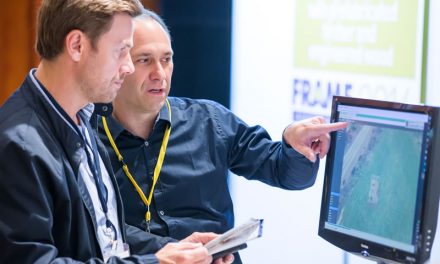Part of the reason I instigated my Publisher’s Notebook column, many years ago now, was to have a platform by which I could sit down with an industry business associate and chat about anything at all. With a hundred or so interviews over the past 20 plus years I hope I’ve been able to bring you a little bit of the personal side of our subjects. My Notebook for February is with someone I met just a couple of weeks after I started TimberTrader News in October 1985.
David Osborn retired from a full time role in our industry just before Christmas, so we caught up for a chat and started to reminisce.
GK: When did you begin working in the timber industry?
DO: It was in the early 1970s. I joined the timber industry by way of forestry.
GK: As a forester?
DO: No, I started as an administrative officer with the Forests Commission, and I worked in the field. There was a lot of mixing with foresters though and they’ve had a great influence on my life.
That was around Maffra and Briagolong, where I hark from, down Heyfield way, in a little place called Tinamba.
I’m third generation Australian. My great grandfather started off grazing, dairy and pig farming.
He sold to the gold miners on their way from Sale to Woods Point and Walhalla. He opened up a school and a general store as well. He settled in the 1860s when the Free Selection Acts were in; the land had previously been leased by a squatter, a Captain Johnson.
The farm still operates today. My brothers run it. My grandfather was a local councillor and was involved in getting the main timber extraction road through to Tinamba.
GK: When you say 1860s, you’re only third generation?
DO: Yes, my father was 64 when I was born. He was born in 1884, 26 years older than my mother.
GK: That’s remarkable.
DO: It’s one of the reasons I had to seek employment elsewhere because I was the youngest of seven children, six surviving. Being the youngest, my Dad took one look at me like a blue heeler and I had to leave.
I sought a job with the bank and with the public service and my old man said, “˜How are you going to afford that? I’m not paying for you in Melbourne’.
Next thing we did a field trip at school and I met a forester and that really appealed to me.
GK: So when did you get out of the forest?
DO: Well I was there for 10 years. I worked most of that time in the field, between Maffra, Briagolong and Yarram. Then I took some leave and did the old overland trip in the Volkswagen van through Asia and Europe ending up in Morocco. You name it,
I was there.
When I came back I worked with the Mt Buller Alpine Reserve, I was assistant secretary based at Treasury Place.
GK: You and I met in 1985 and at that stage you were with VIA Tasboard. When did you join them?
DO: It as 1984. I was recruited into the timber industry by a gentleman called Norm Baker. He was head of a company called Rowe Webb & Anderson, a division of Gollin & Co.
I was recruited because I had a lot to do with their Dargo Ash mill. That’s not going now but it was, up until Neville Smith purchased it. The resource availability had been dramatically reduced.
So I was there for 10 years, and in that time it was taken over by ACI Laminex, and became ACI Timber Products, under the management of Geoff Phillipson.
I was seeking better career opportunities so I joined the Petersville Sleigh Group. They were tied up with Duncans Holdings, which also became Boral. And that’s when I went to VIA Tasboard and met your very self.
GK: And how long were you there?
DO: About three years. And because – well, I wasn’t happy with certain “goings on”. Eventually one of the managers actually went to jail – so I was under a lot of pressure. I left and ACI recruited me back.
Then I was working through one of the Pine divisions at ACI Tumut. That mill still operates I think, as CSR. And yeah, I worked purely for the Radiata Pine interests of ACI in Bombala, Ballarat and Tumut.
GK: That was at the same time that Rod McInnes was active? Rod who’s now the CEO of Timber Queensland.
DO: I had a little bit to do with Rod through the Radiata Pine Association, where I represented both ACI and Hardys Tumbarumba at that stage.
GK: So what happened after that?
DO: Around 1990, CSR acquired ACI, and as a result I could see a big company take-over.
I was quite happy where I was, but Des King from Tasboard approached me again and said, “˜Mind coming back and representing us with a world scale mill we’re building in Tumbarumba?’ That
was Hardys.
So I said why not, which is my usual way of looking at things. So I went back there and we did pretty well.
GK: Now you were selling Pine before it really became a big thing in the Victorian housing industry – as the frame and truss industry was just taking off.
DO: Well before that, during my time with ACI, it started well and was truly making its mark as a framing timber. But at that stage it was also presenting itself as a worthy product for furniture. A young bloke by the name of Mel Meyer was just starting out.
But the trussing got a lot stronger. They were the good old days. You could sell a truckload, rather than a pack.
Having said that, I represented Hardys in Tumbarumba and at Wodonga where they did a lot of treatment. I also represented Tasboard mills, and Duncans, in Victoria as sales manager.
GK: That was sales manager in hardwoods, wasn’t it?
DO: Tasboard, correct. That’s now owned by Neville Smith Tasmania. I also represented Duncans Holdings, from NSW. They had beautiful products, and they were leaders, not just in their products but in their promotion of hardwood in general.
There was a gentleman called John Grundy who I just admired so much. He really pushed that NSW mix of hardwoods; the flooring in particular. His catch cry was to promote lesser grades, hence the enduring names “Australiana” and “Feature Grades”.
GK: We’re into the 1990s now, where did you head to after that?
DO: Boral took over Duncans, Tasboard, Hardys, etc. That was a consolidation period. Boral had the NSW hardwood and the pine.
We were causing the odd irritation as our “world scale mill” suddenly had to produce world scale sales. This was all about high production/low cost as spruiked by Henry Penns at CSR.
So we attacked the market, and Keith Sullivan, who was a tough man, headed straight for Hardys and Duncans.
Boral were our main competitor in NSW; particularly as Tasboard was an ancillary pick up along with Forest Resources, a chipping operation in Tasmania.
We were taken over, and it was a huge takeover. There was a lot of duplicity in management and so forth.
People were “flying left, right and centre” and that was the first time I was retrenched. I’d never lost my job before, and that was quite a shock.
GK: Do you remember the year?
DO: That was 1993, I’ll never forget. After that, I was out of a job for a fortnight. It was the longest fortnight of my life but I hit every person I knew in the market, and made myself available.
GK: Where’d you turn up?
DO: I ended up being offered a job by Geoff White of Newtown Timber; Whiteline Timber Products, which is now Tenon.
Geoff was an old timer. He contacted me and we had a yarn and he said “I can offer you a job”. I said, “that’s beaut, I reckon I’d enjoy it”. He was getting into mouldings and value adding.
He said, “I’ll give you a car, we’ve got an old Mercedes there”. “Not too bad”, I thought. Then when he offered me the money, I said, “gee Geoff is that a month or a year?” He was that sort of bloke.
His son Tony called me the next day and he offered me a reasonable packet. I started and I remained there until four years ago. I left just before things went a bit “cock-eyed”.
GK: Were you working with Pine again, but with mouldings now?
DO: Mainly hardwood with a little bit of pine. Geoff was a trader and he used to go and buy timber where he could. Porta was the leader, and I used to sell to Porta, through Tasboard.
GK: You were a bit of a thorn in Porta’s side, though.
DO: Oh, very much so. Gunnersons had a go, but they didn’t succeed. Geoff bought some of their equipment, their cutters and everything, and set off on his own.
GK: When did Geoff pass away?
DO: Just a few years later, he was involved in a terrible car accident, with his wife. It was very sad. Then Tony took over the reins.
It was a good company and it succeeded on value adding and a “can-do” attitude.
If you put a piece in and eight pieces came out, it could be that seven were OK. That was probably the secret to the moulding market, in many ways. Porta were putting select in and getting select out.
GK: So since then?
DO: I’ve spent the last four years with Russell Henning Timber which I appreciated and enjoyed. The company has a very good future.
GK: And who have been some of the people that have influenced you?
DO: There have been a few, ever since the forestry days. Geoff Phillipson, from the ACI days. He was a well-known personality in the industry, and quite a character.
Des King was another one, he was chief of the Tasmanian operation, Tasboard Mills and Forest Resources and he was like a father figure to me.
Robert Polley from VIA Tasboard, and now of Polley Timber, of Geelong. Robert a consummate sales person. A real professional.
There were many others. Each of them tended to be “a people person”, and I regard that as the absolute essential ingredient to success. By way of timber, or whatever it is you do, it’s people you know, and it’s people you should develop strong relationships with in business. And trust, of course.
GK: During the time when you’ve been in senior positions you’ve seen some pretty tumultuous changes to the industry. With the corporate structure today, do you think it’s advanced or it’s better or worse?
DO: I think it’s just different. You know, when you talk to the buying groups, you’re talking to one person in an office you’ve got to influence, and each one is looking for the lowest possible price.
Everyone’s chasing the same result. It’s seen a lot of good people go and a lot of small businesses go. It’s more insular and it’s not as much fun as it was. But even at the time, I didn’t see Boral as the end of the world, for example. It was just a natural synergy, it was inevitable. As it is in most industries now.
GK: But the timber industry’s been good to you?
DO: As good as anything could be. The timber industry has been my life.










